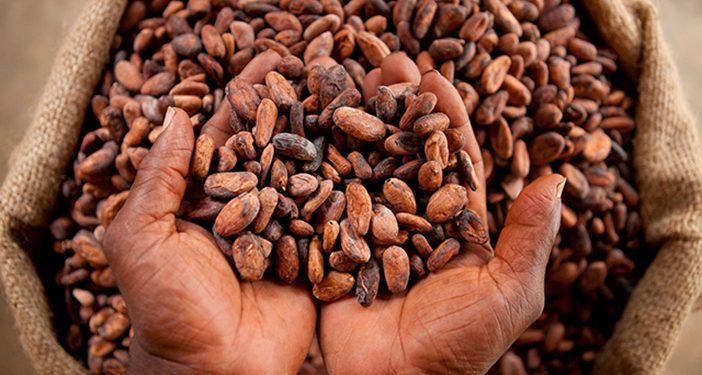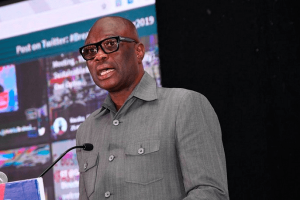The CEO of the Ghana Investment Promotion Centre (GIPC), Yofi Grant, says the absence of “cocoa billionaires” in Ghana is a sign that the country has not efficiently “monetized and domesticated” the crop that regularly brings about two billion dollars of foreign exchange into the country.
According to him, despite having produced cocoa over the past hundred years, there are still no large-scale farms in Ghana. The largest cocoa farm in Ghana is not bigger than 100 hectares.
Also, despite being one of the world’s largest cocoa producers in the world and with the crop yielding about 30 per cent of Ghana’s foreign exchange, Ghanaian cocoa producers are widely acknowledged to not be making enough value from the cash crop.
Speaking at the GIPC’s Cocoa Value Chain Investment meeting in Accra, Mr. Yofi Grant indicated that the GIPC and the Ghana Cocoa Board, COCOBOD, are determined to change the narrative of the cocoa industry in the country.
”The crop generates approximately two billion dollars a year in foreign exchange and employs approximately 800,000 cocoa farmers. That’s directly within the whole value chain of the crop. It’s very significant to the economy, however, the sad thing is that we still have not seen that billionaire emerge from the cocoa industry. But I can tell you today that under the able leadership that we find in COCOBOD, there is some significant effort to ensure that we transform it into a very modern economy, as well as create significant value by adding value to the bean. Through this, we will just no more be a country that exports cocoa beans to Europe and to other parts of the world, but we will be a country that will export cocoa products,” he said.
Being Africa’s highest consumer of cocoa products, South Africa is also one of the biggest investors in the Ghanaian Industry.
South Africa’s High Commissioner to Ghana, Grace Mason, speaking at the same event, noted that cocoa remains one of the sub-region’s biggest competitive advantages, as the African Continental Free Trade Area takes shape.
“It is a competitive advantage for our continent. Cocoa is an absolute advantage for Ghana and the region. It is a competitive advantage and a niche product. The African Continental Free Trade Area is at the apex of our discourse and our agendas. It is also important for me to commend the relationship between the GIPC, GGDA, as it has contributed positively to the investments made by South Africa and South African cooperation in Ghana. The South African investors’ footprint is an eminent one, as we now have close to two hundred companies contributing positively to the economy of Ghana,” she said.
In a bid to increase Ghana’s share of the global cocoa value chain from 3%, the CEO of the Ghana COCOBOD, Joseph Boahen Aidoo, also noted that the company is investing in value addition to the raw cocoa.
He is also advocating for high domestic consumption of cocoa products.
“The next thing is to look at processing because if you look at the cocoa value chain, globally you are talking of over 100 billion dollars annually. But Ghana takes less than three percent annually. Meanwhile, we produce 20 percent. So, it is important that we add value. We should not continue to be a primary commodity exporter. We have to add value and that’s where processing comes in. And our focus now is to do more processing and also promote consumption. Because it is a problem if you process the product and you are not consuming it. Per capita consumption of chocolate and products in Europe is around 6.12 but that of Ghana is 0.53,” he noted.
The Cocoa Value Chain Investment conference was intended to bring together stakeholders in the cocoa industry to discuss strategies to scale up Ghanaian involvement in the cocoa value chain and prepare the country to take advantage of the new African Economic Zone.
It was also held to sensitize industry players on valuable commercial opportunities offered by the African Continental Free Trade Agreement (AfCFTA).
The conference was under the theme “Ghana’s Brown Gold: Sustaining Investments & Leveraging AfCFTA”.






